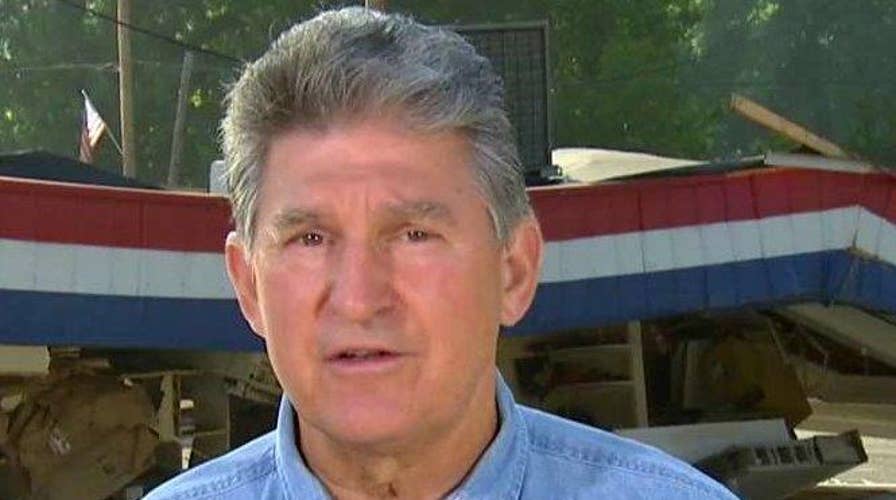If a tree falls in the forest and no one’s there to hear it, does it make it sound?
Try this one:
What if the government shuts down and no one cares? Is the government truly closed?
Well, the jury is still out on the latter supposition. But we came close to finding out Friday night as the Senate struggled to pass an interim government spending bill and keep the federal lights burning.
Anti-climactic. Few even knew there could be a problem.
Television networks didn’t install countdown clocks to bleed the seconds toward a midnight drama. Nothing about ObamaCare. Sen. Ted Cruz, R-Texas, was nowhere to be found.
The House voted 326-96 on Thursday to approve a stopgap spending package -- a “continuing resolution,” or “CR” in Congress-speak -- to run the government through April 28. Then the House skipped town for the holidays, shipping the CR to the Senate for that body to sync up.
In September, Congress OK’d another CR to fund the government until 11:59:59 p.m. ET night. Plenty of time for the Senate to act, right?
Well, it doesn’t quite work that way. The Senate is a body that respects the rights of the minority party. That means a small band of senators -- or even just a lone senator -- can gum up the gearboxes and slow down things.
Such was the case with Sen. Joe Manchin, D-W.V., and a few other Democratic senators when it came to the CR. Manchin didn’t object to funding the government. He wanted a longer health care plan for miners. Health funding was set to expire at the end of the year for miners. The CR re-upped the health provisions through April 28 -- just like almost every other government program. But that didn’t stop Manchin from icing passage of the CR before the Friday night deadline.
“Our caucus is sympathetic to this (miners’ health care benefits). There will be a lot more hooting and hollering,” predicted one senior Senate Democratic aide Thursday afternoon.
But nobody knew precisely what Manchin and others might do.
Did Manchin and company have the votes, willpower and fortitude to force a short government shutdown over the miners’ issue?
“There’s a lot of confusion right now,” said a senior Senate Democratic leadership source who agreed to anonymity.
Senate Majority Whip John Cornyn, R-Texas, said “I’ve been here long enough to learn that on Thursday afternoon, people lose some of their interest. (They) can’t change the outcome. They can keep us here if they want. But we’ll grind through.”
Senate Majority Leader Mitch McConnell, R-Ky., knew that Democrats could drag this out if they wanted. So as soon as the House sent the Senate the CR, he brought the measure to the floor and “filed cloture.”
To the uninitiated, “filing cloture” is one of the most-significant, parliamentary acts in the Senate repertoire. The fundamental glory of the Senate is the right of unlimited debate. But “filing cloture” is an effort to truncate that debate.
That is, as much as truncating debate means that same debate could linger for another few days.
A cloture petition halts filibusters and curbs debate. However, even that takes a while.
Once the majority leader files a cloture petition, the Senate can’t even vote on drawing down debate for another two days.
Senate rules require an “intervening day” between the time when a senator files a cloture petition and when the Senate votes to “invoke cloture.”
In other words, since McConnell filed the CR cloture petition Thursday, Friday served as the intervening day. The cloture petition would then “ripen” for a vote on Saturday. Successfully limiting debate requires 60 votes. If the Senate cobbled together 60 votes, it “invokes cloture.”
And what does that mean? Well, debate doesn’t stop immediately. If senators are dug in on an issue, the Senate affords those lawmakers an additional 30 hours of debate before the body can take a straight, up or down vote on the issue.
In this case, the Senate wouldn’t vote to fund the government until, say 7:30 or 8 a.m. on Sunday -- 30 hours after government spending expired.
Of course, the question in these situations centers on whether the federal government is actually “closed” on a Saturday. The government can’t perform any “non-essential” functions (like guarding the border or fighting ISIS) unless it has fiscal direction from Congress signed into law by the president.
Thus, would the Smithsonian’s Air and Space Museum be open over the weekend for people to look at the Friendship 7 capsule that ferried the late-Sen. John Glenn, D-Ohio, on his historic Earth orbits?
Questions rattled through the Capitol as to whether today’s Army-Navy football game qualified as an “essential” government function. Cadets and Midshipmen would argue it is. It’s unclear if kidnapping Bill the Goat would make the cut.
So senators waited to see whether Manchin would relent and permit a vote Friday on the CR.
When asked if he thought the procedural vote to break the filibuster might come at 1 am ET on Saturday, Cornyn replied “I would hope not.”
Cornyn argued Manchin overplayed his hand on the CR and miners’ benefits.
He recalled former Texas GOP Sen. Phil Gramm’s maxim: “Never take a hostage you’re not afraid to shoot,” then suggested that Manchin had taken “the wrong hostage.”
Congress may control the purse strings. But the executive branch’s Office of Management and Budget is in charge of alerting federal departments and agencies if they have sufficient funds to operate.
“At this time, prudent management requires that the government plan for the possibility of a lapse and OMB is working with agencies to take appropriate action,” the office declared.
A senior Senate Democratic source told Fox News that party leaders were “comfortable where they are having this fight” over government funding and miners benefits.
The fight was a good one politically for Democrats who want to reconnect with working class voters who abandoned the party in favor of President-elect Trump.
There was speculation that Democrats might try to lure Trump into the fight, perhaps pitting him against congressional Republicans.
Sen. Shelley Moore Capito, R-W.V., emerged as a player to watch.
Capito sided with Manchin and supported the filibuster. But she doubted that “shutting down the government is the best way to go about this.”
When asked whether Trump should weigh in on this impasse, Capito replied “that would probably be a good thing.”
Manchin faces a potentially competitive reelection in 2018 in a Republican state.
On Saturday, Louisiana holds a runoff between Republican John Kennedy and Democrat Foster Campbell to succeed retiring Sen. David Vitter, a Republican.
There are also runoffs in Louisiana for the House seats of retiring GOP Reps. John Fleming and Charles Boustany.
These are the final contests of the 2016 election cycle. But that didn’t stop the National Republican Senatorial Campaign Committee from wading into the 2018 midterm elections.
“Joe Manchin’s Government Shutdown” screamed a NRSC news release earlier this week.
The NRSC claimed that Manchin was the “ringleader” of a potential shutdown and that Democrats “have chosen gridlock over compromise.”
But by late Friday afternoon, the dam began to break. Manchin huddled with a group of miners in his office. The senator later escorted them to the Senate’s public viewing gallery to hear him talk about their plight on the floor. At a press conference, a reporter asked Manchin about whether his efforts on behalf of the miners would boost his 2018 re-election prospects.
“I sure don’t think it hurts,” he replied. “Why do you think I was standing there?”
McConnell then scheduled the votes two hours before the government was set to run out of cash. The procedural vote to end debate got a little tense as nine Republican senators defected. But in the end, the Senate scored 61 votes to invoke cloture.
On the next vote, the Senate approved the spending bill, 63-36.
President Obama signed the bill into law after midnight. The government didn’t shut down. But technically, there was a momentary lapse of funding.
The Senate’s 2016 work was nearly complete. But the race for the 2018 midterm elections had already begun.





